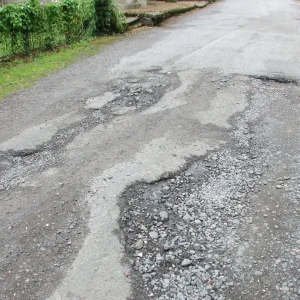Independent auction firm Aston Barclay has bowed to pressure from fleet vendors and will move to the National Association of Motor Auctions-approved vehicle grading system on inspections, but will display these alongside its own, well-established grading that is based on potential vehicle repair costs.
Martin Potter, remarketing director at Aston Barclay, said the group’s customers had been “very vocal” in their support for the existing system but the company recognised fleet vendors were looking for national consistency of reporting.
The company is also close to completing a £7.5m investment programme in premises, logistics and IT in order to upgrade its service to its fleet and leasing clients.
The programme has resulted in premises upgrades at auction sites in Chelmsford, Westbury and Prees Heath, with work at the group’s fourth site, Leeds, due to start later this year. Also, the company has developed its own, bespoke auction management software that offers online vendor reporting, launched a mobile-compatible website, and invested more than £700,000 in new transporters as it beefs up its transport and logistics division.
Coming in the next few weeks will be a tablet-based inspection system with high-resolution imagery that will have the capability to operate off-site.
Aston Barclay has a 50/50 vendor base of fleet and finance customers against dealer groups, which makes it more fleet-oriented than many of the 70 or so independent car auctions in the UK. Potter said the majority of buyers for ex-fleet vehicles were major car supermarkets with some cars going to franchise dealers.
“We understand that there are two customers in this business and we focus on both,” he commented. “We are close to buyers and we understand what they need. Our aim is to get them to spend more of their wallet share with us and not with our competitors.”
David Scarborough, commercial director, argued that smaller auction companies have an important role to play in offering fleet vendors competition and balance against the two major players in the industry.
“Without the likes of us, it’s a two-horse race and prices go up,” he said. “We haven’t got any outside shareholders to satisfy and we’re the third player to negotiate with.
We know our place in the market but fleets need a benchmark provider to help them understand what’s really happening out there.”
With four sites around the UK, the group believes physical auctions are here to stay – at least in the medium term. For a “lot of people” online complements the physical environment said Potter and the growth of online has “plateaued” as connectivity and speed issues intervene.
The company gets around 30% to 40% online bids for its manufacturer sales and 25% to 30% online bids for its fleet and leasing sales. It is currently developing a dedicated App to improve its mobile bidding experience.





